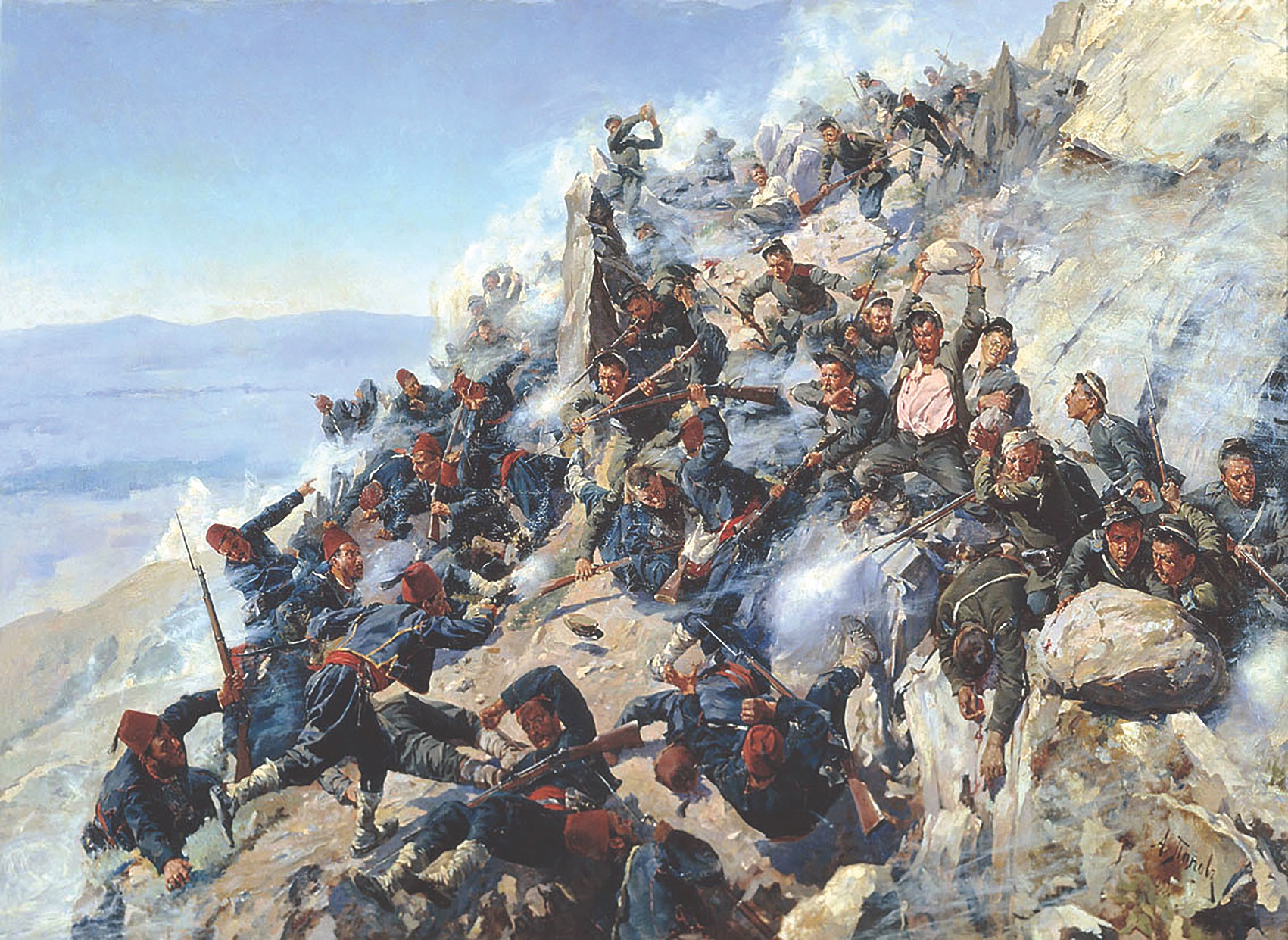By mid-September 1877 opposing armies had spent eight weeks locked in a gruesome slugfest for control of a Bulgarian pass providing a direct route to the Ottoman capital of Constantinople (present-day Istanbul). Mount St. Nicholas loomed above the other three main crests overlooking Shipka Pass, making its capture imperative. Concealed behind boulders, Russian and Bulgarian troops gazed down on a sea of Ottoman corpses left behind after earlier assaults. Far below that scene of carnage a 31-year-old Scotsman paced the Turkish lines, shouting words of encouragement in English as he prepared to lead the last forlorn attempt to capture St. Nicholas and secure the pass. His subsequent deeds would make him a folk hero in the annals of the Ottoman army and forever add the moniker “Shipka” to his name.
Alastair Harry Campbell was born in Argyll on Jan. 6, 1846, but by age 13 had left Scotland, never to return. In 1864 the teen served in the New Zealand Forest Rangers and was wounded in the thigh battling Maori warriors. He next traveled to Africa, serving in Lt. Gen. Sir Garnet Wolseley’s British expedition to the Gold Coast in 1873–74, followed by a stretch in the captured Ashanti capital of Kumasi through 1875. By the time he arrived in Bulgaria in 1877, he’d established a solid reputation as a military adventurer.
The Scotsman embodied everything a Victorian hero should possess—a robust frame, courage bordering on folly and a chivalric spirit. Fellow officers noted he “found a keen joy in danger” and possessed “an unconquerable thirst” for combat. Campbell reportedly had one other unconquerable thirst—for hard drink. Wolseley recalled that when “sober and away from temptation, he is a splendid fellow,” but when under the spell of spirits, the Scotsman could be volatile.
Campbell arrived in Constantinople in the summer of 1877, offering his services to the Ottomans at the outbreak of the latest Russo-Turkish War. Assigned as a staff officer to Süleyman Pasha, he doubled as a British war correspondent during the subsequent Balkan campaign. The Scot became an idol in camp for his larger-than-life personality, coolness under fire and compassion toward Ottoman soldiers.
Starting in mid-July Süleyman sacrificed thousands of men in futile assaults against the Russians atop Shipka Pass. Finally, on September 17 Campbell volunteered to lead 800 men against Mount St. Nicholas. Under Russian gunfire Campbell and his troops scaled the near-vertical heights, securing a toehold on the peak. There they remained huddled for hours under intense fire, shielded only by splintered rocks and the bodies of their dead. With their ammunition expended and no infantry support forthcoming, the attackers were forced to abandon the position. Just six, including Campbell, returned uninjured to a hero’s welcome. A contemporary war correspondent noted the action as “the pluckiest thing that has been done in any modern war.” Sultan Abdülaziz awarded the Scot the Medjidie Order for distinguished service by a foreign national.
Campbell left Bulgaria a celebrity and resided in Ceylon until recalled to Africa in 1879. That fall Wolseley appointed him to lead a contingent of allied Swazi auxiliaries against rebelling King Sekukuni in the Transvaal. On November 28 Wolseley’s column struck Sekukuni’s camp. Campbell had expressed a premonition of death before the battle but nevertheless charged out boldly in front of the main line. It wasn’t long before he dropped, reportedly shot by one of Sekukuni’s warriors and dragged into a cave to be finished off.
Despite heroic efforts, the revered Scotsman’s body was never found. Tragic as his end may have been, a soldier’s death on the field seemed fit for the fabled “Shipka” Campbell.

